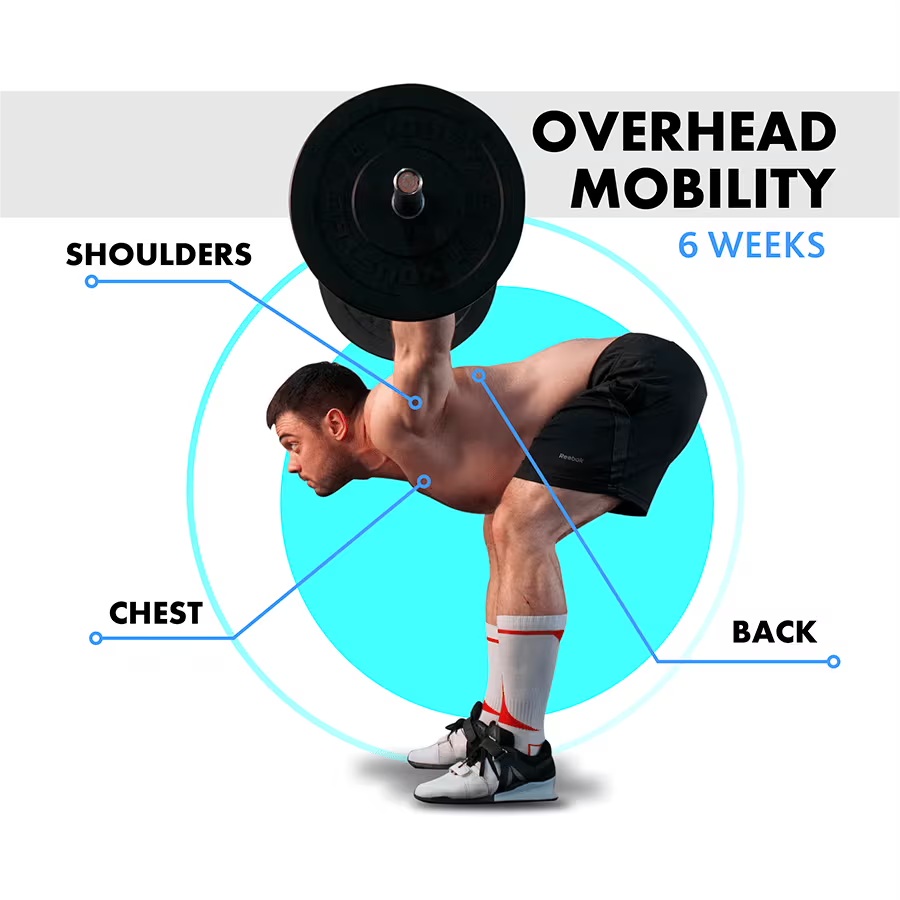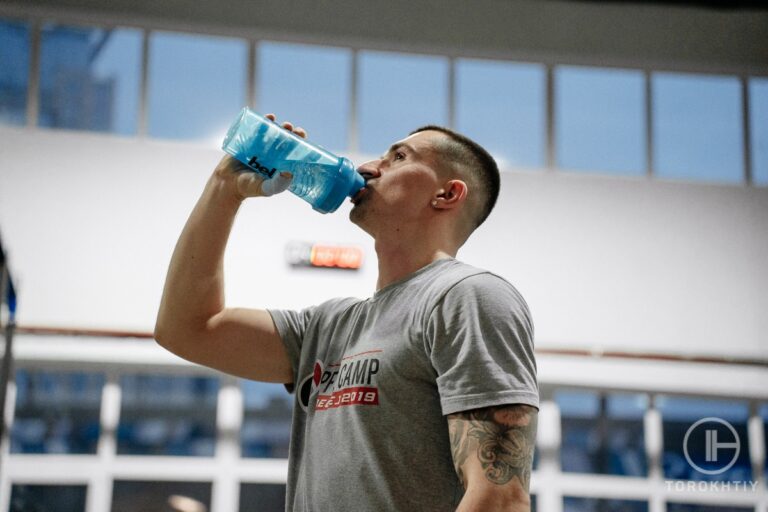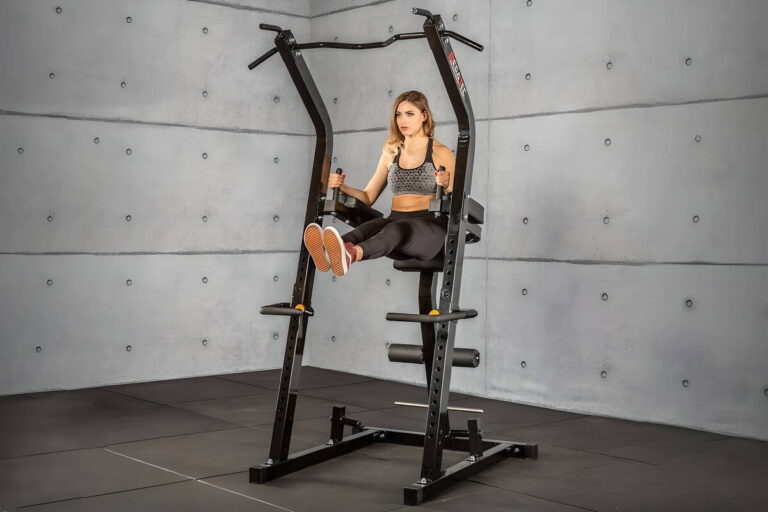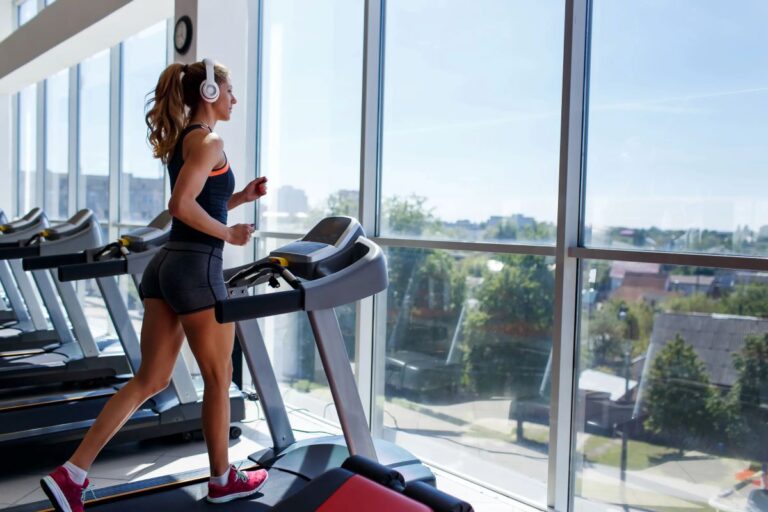Scapular Mobility Exercises: Improve Your Strength & Stability
Have you ever felt tension or pain in your shoulders or upper back? If so, scapular mobility exercises could be the solution you’ve been looking for.
How to adjust a treadmill belt? The first thing you need to do is to find the rear roller bolts (at the back of your treadmill). You’ll need an Allen wrench to tighten or loosen them. After you’re done, make sure to test it before you actually use it.
We’ll explore some of the best exercises to improve scapular mobility and how to incorporate them into your workout routine.

The Importance of Scapular Mobility Exercises?
Scapular mobility exercises are exercises that help to improve the movement and stability of your shoulder blades.
These exercises can improve posture, reduce back and shoulder pain and tension, and help you move more efficiently during everyday activities.
By improving the mobility of your shoulder joints, you can move them better in all directions with less strain on your body.
These scapula exercises typically involve activating the muscles around your shoulder blades and moving them in various directions.
This enhances the muscles’ stability and flexibility in motion while also lengthening and strengthening them.
Joint scapular elevation exercises include push-ups, pull-ups, rowing movements, planks, mini band wall slides, and reverse flys.
It’s important to start slow when doing these exercises as they can cause strain if carried out impatiently or improperly.
Scapular dyskinesis is a condition that can cause pain and discomfort in the upper back and neck. Doing these scapular exercises can help to reduce this pain.
Start by performing each scapular strengthening exercises with light weights or no weight until you become comfortable with the movements.
From there, you can progressively raise the weight or resistance as needed.
Make sure to focus on proper form throughout each scapular exercise so that you benefit most from it while avoiding any unnecessary strain on your body.
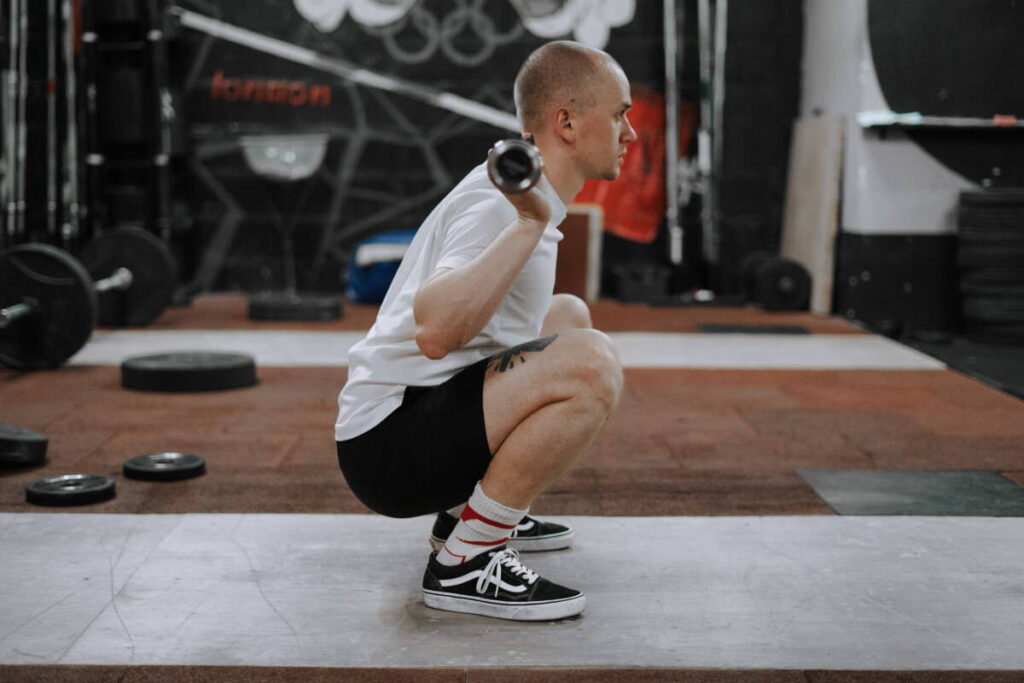
Benefits of Scapular Mobility Exercises
Scapular mobility exercises can provide a range of benefits, including:
- Improve your posture
- Reduce back pain and tension
- Increased range of motion and scapular stability
Performing these exercises will give you an increased range of motion and active flexibility movement. Assisting in easing suffering or hurt in the upper body.
Stronger shoulder muscles also mean improved stability and balance when performing activities such as carrying objects, playing sports, and everyday activities.
Let’s review the listed reasons for scapular strengthening exercises.
Improve Your Posture
Good posture is critical to looking and feeling your best. Luckily, with the help of scapular mobility exercises, you can improve your posture in no time.
By strengthening and lengthening the muscles around your shoulder blades, you can improve your body mechanics and reduce any muscular tension or pain caused by bad posture.
Improved posture and reduced risk of shoulder injury can lead to improved confidence, better sports performance, and even heightened productivity at work.
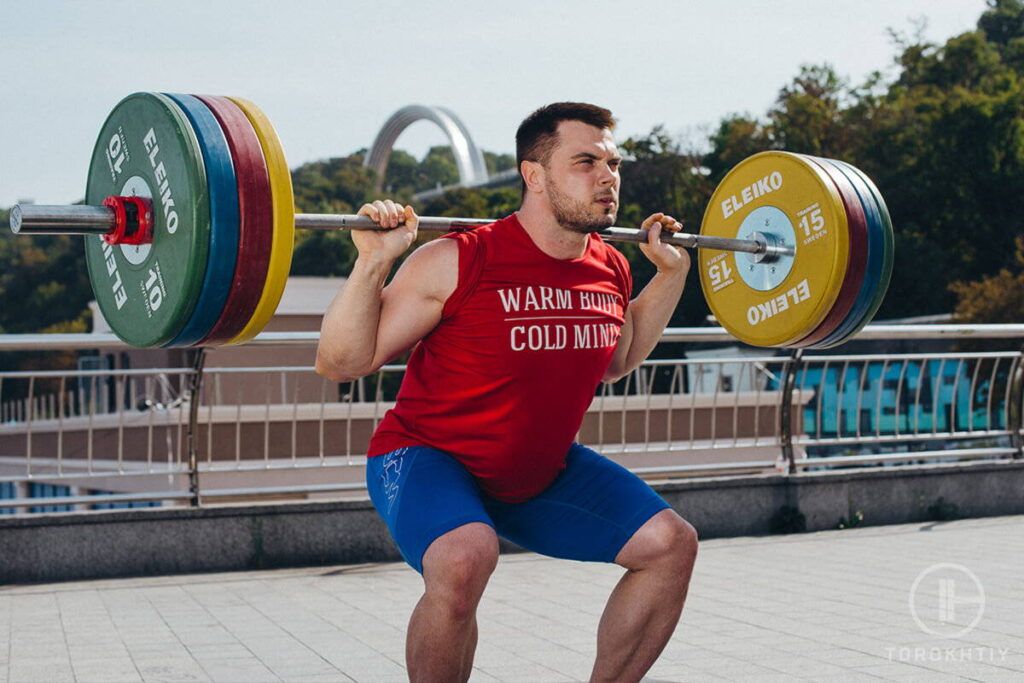
Reduce Back Pain And Tension
If you have tightness or deficits in muscle strength around your shoulder blades, it can lead to pain and tension in your back.
Doing scapular mobility exercises can help to alleviate this pain and tension by strengthening and lengthening these muscles.
You can help reduce any existing discomfort while preventing future injuries.
Increased Range Of Motion With Scapular Stability Exercises
A strong and stable range of motion in your shoulder blades is essential for everyday activities and sports performance.
Scapular mobility exercises help increase your range of motion by strengthening the muscles around your shoulder blades and lengthening them.
This will improve your stability when performing any activity, like playing an intense basketball game.
Any athlete needs to consider scapular mobility exercises to ensure they are performing their best.
Scapular mobility exercises can provide many benefits, such as improved posture, reduced back pain and tension, and increased range of motion and stability.
By improving your body mechanics, you can move more freely and reduce pain or tension in your back.
So if you’re looking for a way to become more robust, more flexible, and more efficient with arm movement – give scapular mobility exercises a try.
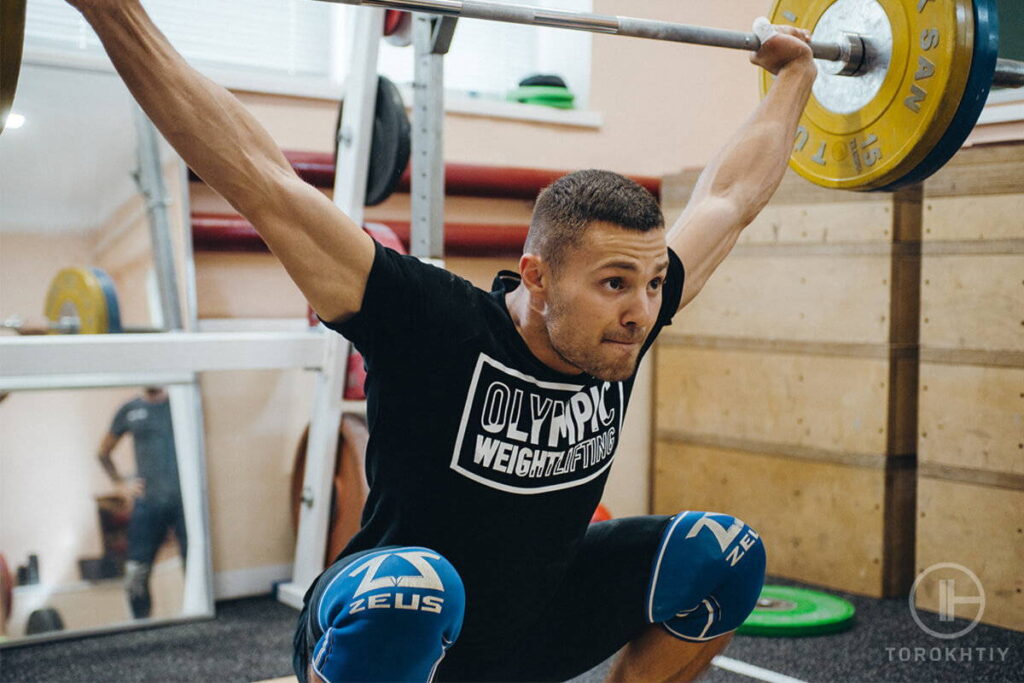
Safety Considerations for Scapular Mobility Exercises
Safety is always essential when exercising, and scapular mobility exercises are no exception.
It’s crucial when executing these workouts to be aware of your body’s limitations and work within them.
Before you start any exercise, please warm up your muscles with dynamic shoulder stretches such as arm circles and shoulder rolls.
Doing so will allow you to move more freely and decrease your chance of injury.
Using proper form during upper body exercises is also essential to avoid overstretching or straining your shoulders or upper back muscles.
Please maintain control throughout each movement, allowing for a slow and steady progression as you build muscular strength over time.
Finally, if you experience pain or discomfort while performing these exercises, stop immediately and consult a physical therapist.
When it concerns your physical well-being, it’s best to use caution.
🔻OVERHEAD MOBILITY CYCLE Program
Boost Your Overhead Mobility!
Pro or beginner, our Overhead Mobility Program is your key to success.
Why Choose?
- 🏋️ Master Olympic weightlifting, from beginner to pro.
- 💪 Boost upper body mobility and joint strength.
- 🚀 Solidify your confidence in overhead movements.
- 🥇 Achieve new personal bests.
- 🎯 Benefit from 60+ unique exercises.
- 📈 5 tests to track your progress.
- ⏰ 18 efficient 30-minute workouts.
- 📹 120 video guides.
- 🔒 Lifetime access for success anytime, anywhere.
Don’t wait – unlock your potential today! 🚀
Scapular Mobility Exercises for Peak Performance
Scapular mobility exercises are a great way to help you reach peak performance in sports and everyday life.
Focusing on proper form during each exercise is vital to getting the most benefit from them while avoiding any unnecessary strain on your body.
Here are our listed scapular strengthening exercises:
- Shoulder blade squeezes
- Wall angels
- Prone t-raise with resistance bands
We put them in order of difficulty so you can start slowly and work your way up the list to your fitness level.
Scapular mobility exercises can help improve your sports performance, as well.
Whether you’re a professional athlete or enjoy playing recreational sports, having strong and flexible shoulder blades can help you move faster and more effectively while performing any activity.
Shoulder Blade Squeezes
Shoulder blade squeezes are a great way to improve scapular mobility and help protect your shoulders from injury during physical activities.
This simple exercise can be done anywhere and requires no special equipment.
- Proper stretching is recommended before any exercise.
- To do a shoulder blade squeeze, combine your shoulder blades as though you were attempting to secure something between them while standing with your arms by your sides.
- Before releasing it, maintain the stance for 5–10 seconds.
- Repeat this 10-15 times for best results.
Shoulder blade squeezes are an excellent way to increase strength in your upper back muscles.
They are also easy to incorporate into any fitness routine – all ages and fitness levels can choose them, making them the perfect option.
Furthermore, because they require no special equipment or setup, shoulder blade squeezes can be done almost anywhere – whether you’re at home, in the gym, or even just out for a walk.
Wall Angels
Wall angels is another excellent scapular strengthening exercise for improving your upper back muscles.
Follow these steps:
- Stretching your muscles will assist your body’s preparation for exercise.
- All you need to do is stand with your feet shoulder-width apart and arms at your sides in a neutral position.
- Lift both arms above your head, keeping them straight and as close together as possible.
- Then, slowly lower them down in a sweeping motion, maintaining contact between your arms and the wall behind you throughout the movement.
- Aim to complete 10-15 repetitions while maintaining good form.
This exercise can easily be modified depending on your fitness level – adjust the range of motion used during each repetition or use a wall for extra support if needed.
So don’t be afraid to try wall angels – it’s an excellent way to improve scapular mobility and build strength in your upper body.
Prone T-Raise With Resistance Bands
Prone t-raise with resistance bands is an excellent exercise for improving scapular mobility and strengthening the upper back muscles. All you require is a set of resistance bands to get started.
Follow these steps to perform the activity:
- Start stretching your muscles and preparing your body for the exercise.
- To do this exercise, begin by lying on your stomach with the looped resistance bands around your wrists or forearms.
- Next, keeping your arms straight and core engaged, slowly lift both arms as if you were forming a “T” shape with them. As you lift your arms, make sure to, through the exercise, keep them aligned with your shoulders.
- Hold at the top of the motion for 5-10 seconds before slowly lowering your arms back into their starting position.
- Aim to complete 10-15 repetitions for best results.
This exercise can easily be modified depending on your fitness level – increase or decrease the tension in the band or change the range of motion used during each lifting session to find what works best for you.
Give prone t-raise with resistance bands a try – it’s just one of our scapular depression exercises to build strength in your upper body.
FAQ
What Causes A Lack Of Scapular Mobility?
Lack of scapular mobility can be caused by various factors, including injury, tight muscles in the back and shoulder region, and even poor posture.
Poor posture is often one of the leading causes of limited range of motion in the scapula, as it can lead to muscle imbalances, misalignment, and decreased flexibility.
Why Do I Have A Limited Range Of Motion In My Scapular?
A limited range of motion in the scapula is often caused by inactivity or physical harm.
As long as you are not in excruciating discomfort, we suggest you try the scapular stabilization exercises we’ve given. To determine if you can perform our scapular exercises, you can begin by stretching.
Try speaking with a doctor if stretching causes you pain.
How Long Does It Take To Get A Flexible Scapular?
The amount of time required to get a flexible scapular depends on a few factors, including your current level of mobility and the type of exercises you are doing.
Generally, it takes anywhere from two weeks to six months to improve your range of motion depending on how often you practice the exercises.
Conclusion
Incorporating scapular mobility exercises into your workout routine can significantly improve overall shoulder health and stability.
Pay attention to this overlooked area of the body and enjoy the benefits of increased shoulder range of motion and reduced risk of injury.
In the comment box, please feel free to ask me any questions.
Also read:
- Shoulder Mobility Exercises
- Stretching for Weightlifting
- Upper Body Stretch
- Overhead Squat
- Squat Stretches
- Thoracic Mobility Exercises
- Tricep Stretches
- Lat Stretches
References:
- What Is Scapular Dyskinesis? // WeMD: https://www.webmd.com/a-to-z-guides /what-is-scapular-dyskinesis
- Shoulder Stability in Pilates Exercises // Verywellfit: https://www.verywellfit.com/ shoulder-stability-in-pilates-exercises-2704842
- What is dynamic stretching and how to do it // Medicalnewstoday: https://www.medicalnewstoday.com /articles/dynamic-stretching
- Wall Angels: Benefits, Muscles Worked, and How-To // Healthline: https://www.healthline.com/health /fitness/wall-angels
Why Trust Us?
With over 20 years in Olympic Weightlifting, our team does its best to provide the audience with ultimate support and meet the needs and requirements of advanced athletes and professional lifters, as well as people who strive to open new opportunities and develop their physical capabilities with us.
By trusting the recommendations of our certified experts in coaching, nutrition, dietology, and sports training programming, as well as scientific consultants, and physiotherapists, we provide you with thorough, well-considered, and scientifically proven content. All the information given in the articles concerning workout programming, separate exercises, and athletic performance, in general, is based on verified data. We ensure that you can rely on our professionals’ pieces of advice and recommendations that can be treated as personalized ones which will benefit you and fully meet your needs.
The product testing process is described in more detail here
Author: Zinaida Bondarenko
Coach, Physiotherapist
Physical rehabilitation experience: 10 years
Zinaida was a member of the national team of Ukraine in rhythmic gymnastics, accumulating 15 years of professional sports experience. She holds certifications in functional training, rehabilitation, kinesiotherapy, specializing in working with athletes across various domains: recovery, rehabilitation, functional and mobility training, General Physical Preparedness (GPP), as well as injury prevention through specific program design. Moreover, she focuses on athlete and coach education to enhance performance and prevent injuries.

